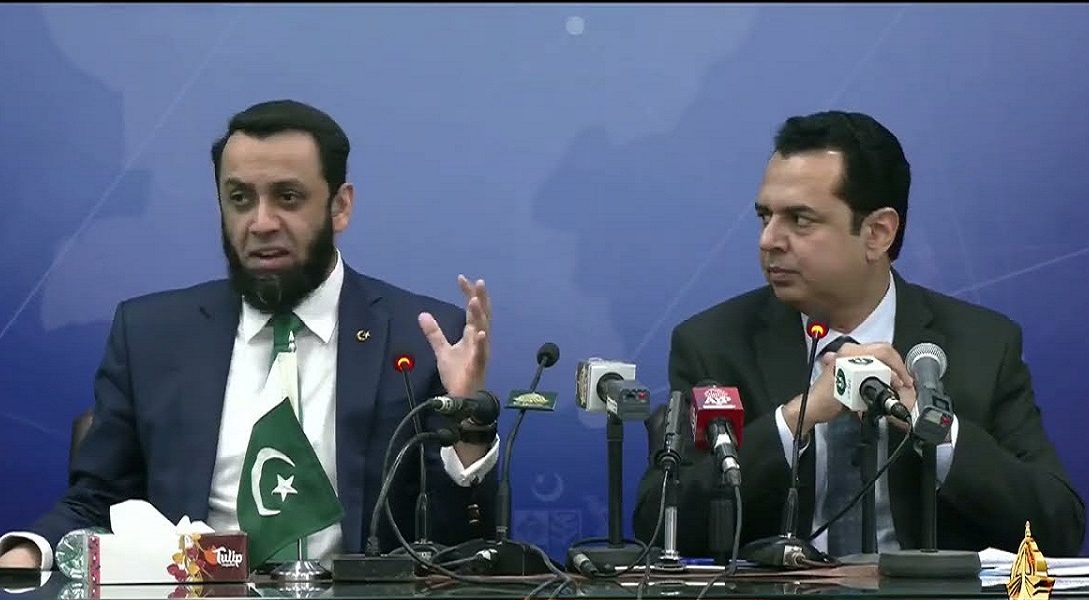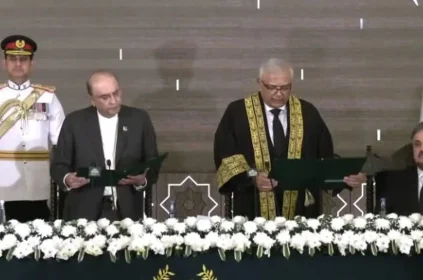NATIONAL NEWS
ISLAMABAD: Pakistani authorities have detained a fisherman allegedly working for Indian intelligence agencies to conduct espionage activities inside Pakistan, Information Minister Attaullah Tarar announced on Saturday.
Speaking at a joint press conference with Minister of State for Interior Talal Chaudhry, Tarar said the suspect, identified as Ijaz Mallah**, was taken into custody after being under close surveillance by Pakistani intelligence officials.
According to Tarar, Mallah, a resident of Shah Bandar in Thatta district, Sindh, was initially detained by the Indian Coast Guard earlier this year while fishing in international waters. He was reportedly coerced into cooperating with Indian intelligence under threat of imprisonment.
The minister claimed that during his detention, Mallah was pressured to work for Indian handlers and promised financial incentives and gifts in return. “He was warned that refusal could lead to a three-year jail term,” Tarar said.
Upon his release, Mallah was allegedly instructed to collect Pakistan Army, Navy, and Sindh Rangers uniforms, along with local SIM cards, cigarette packets, matchboxes, lighters, and Pakistani currency notes — all items meant to be handed over to his Indian contacts.
Pakistani intelligence agencies began monitoring his activities and tracked his attempts to acquire these materials. “He was arrested while attempting to cross back into India with the collected items,” Tarar stated.
A video confession of Mallah was also made public, in which he admitted to accepting India’s offer out of fear and the lure of money. In the recording, he identified an Indian operative named Ashok Kumar as the handler who assigned him to gather three Zong SIM cards and other everyday Pakistani goods to be used in “operations.”
Minister Tarar described the arrest as a significant intelligence success**, saying it underscores Pakistan’s capability to expose cross-border espionage networks. He hinted that the operation may have links to ongoing Indian naval exercises near Gujarat and Kutch, suggesting an attempt to synchronize disinformation efforts with military maneuvers.
Tarar accused India of continuing a campaign of subversion and propaganda against Pakistan. “Since the exposure of Indian spy Kulbhushan Yadav in 2016, Indian agencies have shifted tactics — now exploiting civilians, such as fishermen, instead of sending trained officers,” he alleged.
Talal Chaudhry added that the recovered evidence included military-style uniforms complete with name tags and fittings, suggesting an attempt to create fake scenarios implicating Pakistan in fabricated incidents.
Concluding the briefing, Tarar said Pakistan’s intelligence and law enforcement agencies remain “fully vigilant and proactive” in uncovering and dismantling hostile plots.
“This case once again proves the competence and readiness of our institutions in defending Pakistan against espionage and disinformation campaigns,” he asserted.
















